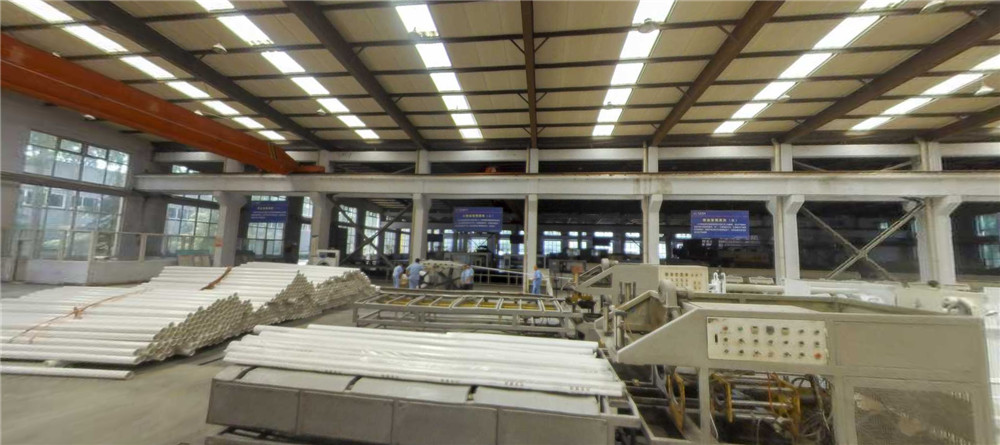Jul . 26, 2024 13:30 Back to list
Exploring the Versatile Applications and Benefits of Rigid PVC Sheets in Various Industries
An Overview of PVC Rigid Sheets
Polyvinyl Chloride (PVC) is one of the most widely used synthetic plastic polymers in the world. Among its various forms, PVC rigid sheets stand out due to their versatility, durability, and cost-effectiveness. These sheets are employed across a myriad of industries, from construction and signage to packaging and automotive, making them a valuable material in today’s manufacturing landscape.
Composition and Properties
PVC rigid sheets are primarily composed of polyvinyl chloride, which is a synthetic resin made from the polymerization of vinyl chloride monomers. The rigidity of these sheets is a result of the polymer's molecular structure, which allows them to maintain shape and strength under various conditions. They are typically produced in various thicknesses ranging from 0.5mm to 25mm, catering to different application requirements.
One of the key properties of PVC rigid sheets is their excellent resistance to chemical corrosion. They can endure exposure to various acids, alkalis, and salts, making them suitable for use in laboratories and industrial environments. Moreover, PVC rigid sheets are waterproof and can resist moisture, which prevents warping and degradation over time. This feature is particularly advantageous in construction and outdoor applications.
Additionally, PVC rigid sheets possess good thermal and electrical insulation properties. They can withstand a range of temperatures without losing structural integrity, making them appropriate for applications in diverse climates. Their electrical insulation capabilities also make them ideal for use in electronic equipment housings and protective coverings.
Applications
The applications of PVC rigid sheets are vast and varied. In the construction industry, they are used for wall cladding, roofing, and windows due to their durability and low maintenance requirements. PVC sheets can also be fabricated into doors, partitions, and ceilings, providing aesthetic appeal while ensuring structural integrity.
pvc rigid sheet

In the signage sector, PVC rigid sheets are favored for their ease of printing, allowing for high-quality graphics and durability against weather conditions. They are often used to create promotional displays, outdoor signs, and interior marketing materials. Their lightweight nature combined with strength makes them ideal for both permanent and temporary signage solutions.
Furthermore, PVC rigid sheets are significant in the packaging industry. They can be molded into different shapes, making them suitable for a variety of packaging needs, including protective cases for electronics and food trays. Their recyclability adds to their appeal, as more manufacturers are becoming environmentally conscious.
Benefits and Environmental Considerations
The benefits of PVC rigid sheets extend beyond their properties and applications. They are economically viable with relatively low production costs, which makes them an attractive choice for manufacturers. Their longevity reduces the need for frequent replacement, contributing to cost savings in the long run.
However, it is essential to address the environmental concerns associated with PVC. The production and disposal of PVC can release harmful chemicals if not managed properly. As a response to these concerns, many manufacturers are now adopting sustainable practices in the production of PVC materials. Innovations such as the development of bio-based PVC and recycling programs are becoming prevalent, aiming to reduce the ecological footprint of this material.
Conclusion
PVC rigid sheets are a critical material in modern manufacturing and construction. Their versatility, durability, and cost-effectiveness make them suitable for a wide range of applications across various industries. While environmental considerations are important, ongoing innovations and sustainable practices provide a pathway for responsible use of PVC. As industries continue to evolve, PVC rigid sheets will undoubtedly remain a staple, proving their worth in our everyday lives.
-
Durable PP Rigid Sheet: Lightweight, Chemical Resistant Solutions
NewsAug.21,2025
-
PVC Grey Sheet for Extraction: Chemical Resistant & Durable
NewsAug.19,2025
-
Durable PVC Pipe Fittings for Plumbing & Irrigation Needs
NewsAug.18,2025
-
HDPE Steel Belt Reinforced Spiral Corrugated Pipe | High Strength
NewsAug.17,2025
-
HDPE Pipe Fittings: Durable, Leak-Proof Solutions
NewsAug.16,2025
-
Premium CPVC Sheet: High-Temp & Chemical Resistant Solutions
NewsAug.15,2025

